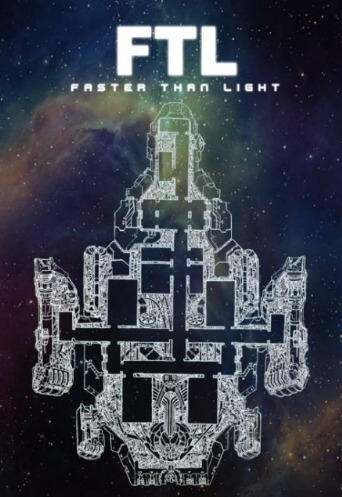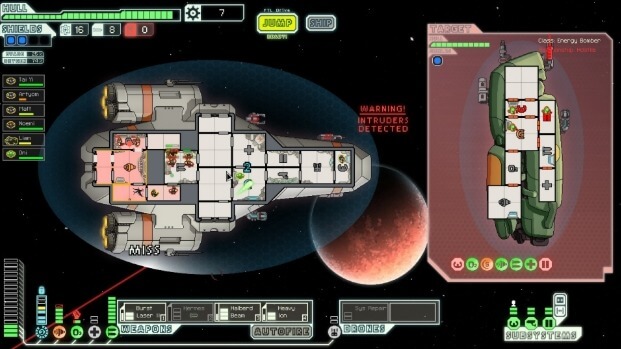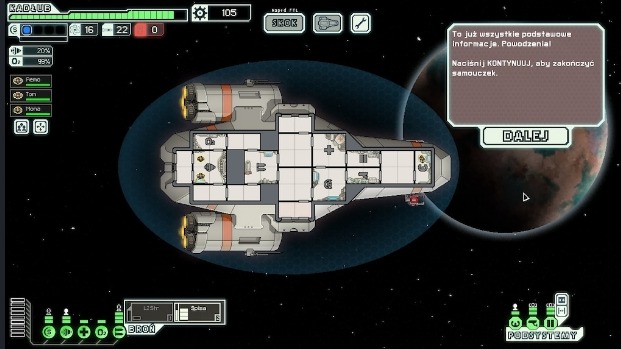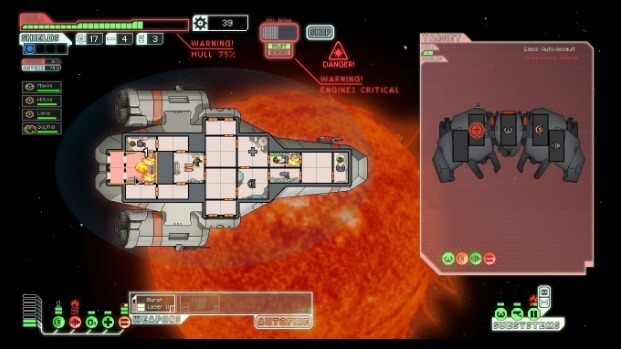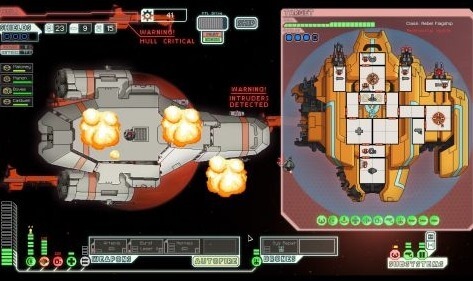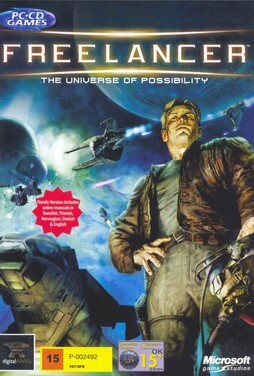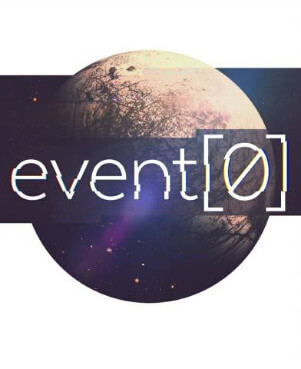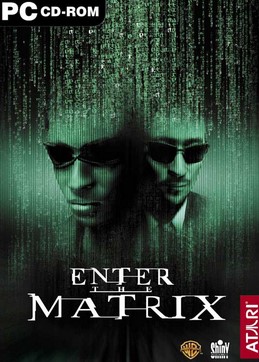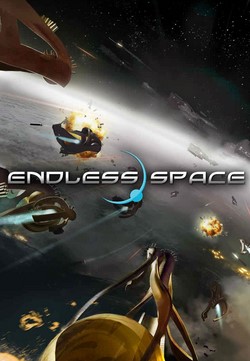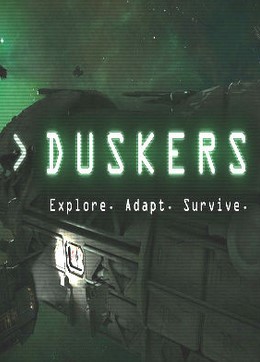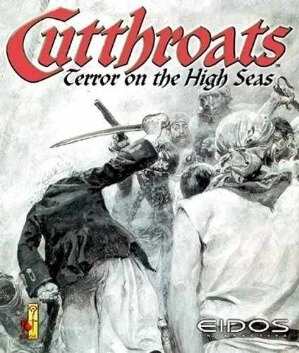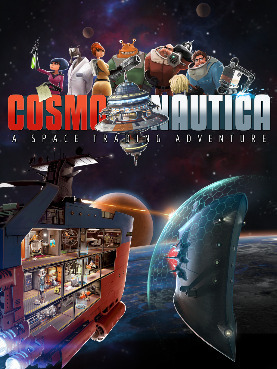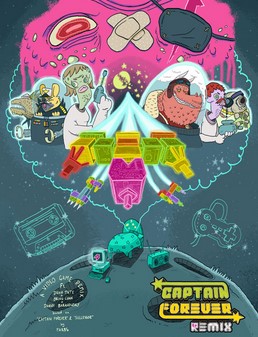The player controls a spacecraft capable of traveling faster-than-light (FTL). It belongs to the Galactic Federation, which is on the verge of collapse after losing a war with an exclusively human and xenophobic rebel faction. The player's crew intercepts a data packet from the rebel fleet containing information that could throw the rebels into disarray and ensure a Federation victory. The goal is to reach Federation headquarters, waiting several space sectors away, while avoiding destruction from hostile ships or by the pursuing rebel fleet. The final sector ends with a battle against the Rebel Flagship, a multi-stage fight which results in victory or defeat for the Federation.
Gameplay
At game start, the player chooses a spacecraft with several specific systems rooms (piloting, engines, weapons, life support, etc.), and a crew. The game randomly generates eight space sectors similar to roguelike games, with twenty-some waypoints per sector. The player must "jump" the ship between waypoints, normally unaware what awaits at each point, and make headway to an "exit" point leading to the next sector until the Federation is reached. The player’s ship accumulates currency, additional crew, equipment, ship enhancements, but also damage to ship and crew, by maximizing the number of waypoints (and hence events/other ships) visited per sector. The player can revisit waypoints, but each warp jump consumes fuel and causes the rebel fleet to advance in each sector, and slowly take over more of the beacons. Once a beacon is taken over, jumping to the beacon will result in an encounter with a rebel cruiser, and will only ever grant the player one piece of fuel as a reward for defeating the ship. Encounters are more dangerous, and give better rewards, in later sectors of the game.
There are eight different races of species in the game. These races can both be acquired by the player, and fought against on an enemy ship. The eight races are Humans, Engi, Zoltan, Mantis, Rock, Slug, Lanius, and Crystal. Each of the races have different strengths and weaknesses based on their physiology. For example, the Rock race are more resistant to damage and fire, but are slower than other races.
Waypoints may include stores that offer ship systems, fuel, ammunition, weapons, drones, crew recruits, and hull repairs for a certain amount of scrap (in-game currency). Other waypoints may appear as distress calls from stranded ships or traps set by rebels or pirates (a ship that has been taken over by a hostile group). Certain destinations are hazardous to the ship or ship functions: asteroid belts continually pelt ships, nebulae disable sensors, and flares from red giant stars cause fires. Hostile ships often attack the player and must either be destroyed, fought until they offer to surrender, or evaded by "jumping" away. During battles, the game becomes a real-time space combat simulator in which the player can pause the game for situation evaluation and command input.
In combat, the player can manage the ship's systems by distributing power, order crew to specific stations or rooms to repair damage, and fire weapons at the enemy ship. Successful weapon strikes by either side can damage systems, disabling their functions until repaired by crew; cause hull breaches that vent air into space until patched by crew; ignite fires that spread and damage both systems and the hull until they are extinguished by crew or starved of oxygen; and inflict direct hull damage, which reduces the ship's hull points. A ship is destroyed once its hull points are reduced to zero, or defeated once its crew is eliminated. A player victory earns resources for bartering, upgrading, or combat; an enemy victory results in game failure, deleting the save file and forcing the player to start over, creating a high level of difficulty. Alternatively, the player may evade combat by jumping to another waypoint after the ship's engines have fully charged; occasionally hostile ships may likewise escape the player.
The game begins with a single available ship, the Kestrel-class cruiser in default “A” configuration. Nine further ships, one for each of seven non-human races and two additional human Federation ships, are unlocked by completing various optional objectives. All ships have two additional layouts (except Crystal and Lanius, with one each) — different color schemes, equipment, and crew — that can be unlocked by completing base-layout objectives. Each ship design and layout begin focus on different game play aspects: the ship roster has designs emphasizing stealth cloaking, boarding, drone systems, and other variations. The game also has separate achievements with no gameplay impact. The game can be modified by the user to alter the various ship configurations.
Reception
FTL received positive reviews, with praise for the game's captivating nature and means of tapping into the imagination of the players who have envisioned themselves as captains of starships. The game's approach and setting has been compared to science fiction works; Ben Kuchera of Penny Arcade Report called FTL "Firefly by way of the Rogue-like genre", while others have compared it to Star Trek and Star Wars.
PC Gamer awarded FTL its Short-form Game of the Year 2012 award. The game won both "Excellence in Design" and the "Audience Award", and was a finalist for the "Seumas McNally Grand Prize" awards for the 15th Annual Independent Games Festival. It was also named the "Best Debut" title at the 2013 Game Developers Choice Awards. At the 2014 National Academy of Video Game Trade Reviewers (NAVGTR) awards FTL received the nomination for Game, Strategy (Justin Ma, Matthew Davis) and Game Engineering (Matthew Davis). Forbes listed both Ma and Davis in its 2013 "30 Under 30" leaders in the field of games for the success of FTL.
While reception of the game has generally been positive, some reviewers have criticized the game's difficulty level. Sparky Clarkson of GameCritics wrote, "FTL is an absurdly, cruelly difficult game." The staff of Edge magazine, while generally complimentary towards the game, said, "FTL can occasionally feel punishing".
The iPad version of FTL: Advanced Edition was praised for the intuitive touch controls, fine-tuned to work on the device. This version has received universal acclaim with a Metacritic score of 88/100 based on 17 reviews.
